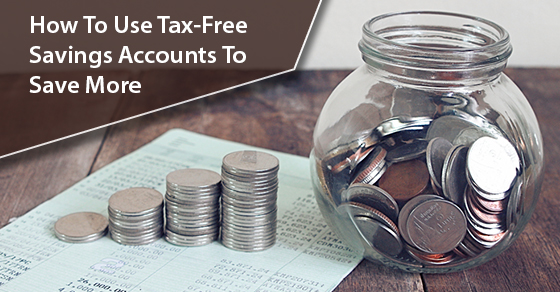
How to Use Tax-Free Savings Accounts to Save More
There are so many investment options today that it’s easy to become overwhelmed. You may hear a lot of conflicting advice about which investments are the best for you, so it’s important to know how to manage your money wisely. Understanding the way different accounts and investments work is a big part of that.
What Are Tax-Free Savings Accounts?
In most places, when you open a savings account, you’ll be required to pay taxes on the interest that you accrue. The same is true for equivalent places to place your money, like money market funds. There are a few savings accounts that are exempt from this rule, as well as other financial instruments you might not have considered. These are called tax-free savings accounts. If you want to reduce your annual tax bill and stretch your savings further, one of these accounts might be a good investment option.
Healthcare Savings Accounts and Flexible Spending Accounts
These programs can provide tax relief to help people deal with childcare and health expenses. Though the names are similar, each account is unique and has some important differences.
A flexible spending account:
- Pays healthcare and childcare expenses
- Must have the sponsorship of your employer
- Must be started with a deposit amount that’s declared at the beginning of the year and cannot be changed
- Will not roll over, so you lose the money if you don’t use it
- Doesn’t require the payee to have high-deductible health insurance
A health savings account:
- Doesn’t need to be sponsored by an employer
- Must be opened by someone with high-deductible health insurance
- Includes year-to-year rollovers so you don’t lose your money
- Earns interest
- Can only be spent on health expenses, rather than health and childcare expenses
The two accounts do share one defining feature: No matter which type of account you have, your contribution is done before you pay your income tax. This is a way of increasing the amount of money you have on hand for healthcare costs. When the HSA rolls over each year, you might even be able to earn some tax-free interest on the unspent money.
For people with recurring medical costs or upcoming procedures that aren’t covered by their insurance, and who have a solid estimate of their medical needs over the next year, an FSA or HSA account might be a good idea.
Leave A Comment
The comments are closed.


